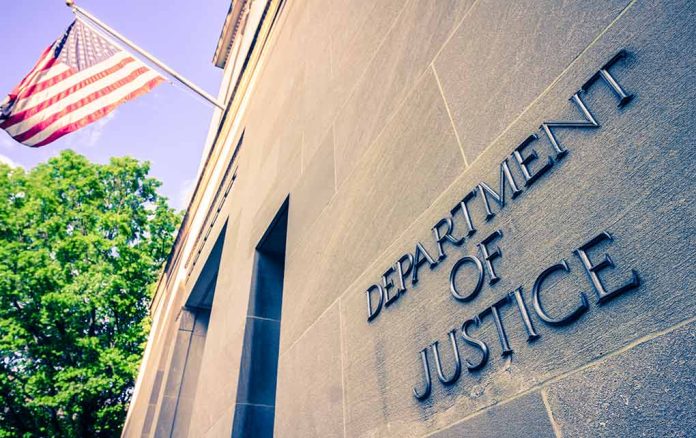
The U.S. Justice Department has filed an antitrust lawsuit to block Hewlett Packard Enterprise’s $14 billion acquisition of Juniper Networks, raising questions about future regulatory moves.
Key Takeaways
- The DOJ filed a lawsuit to block the HPE and Juniper Networks acquisition.
- This marks the first antitrust suit under President Trump’s renewed term.
- The merger is alleged to reduce competition, impacting prices and innovation.
- HPE and Juniper oppose the lawsuit, citing consumer benefits.
- Expectations of a more lenient antitrust stance under Trump are challenged.
The DOJ’s Antitrust Action
The Department of Justice (DOJ) initiated legal proceedings to obstruct a $14 billion acquisition deal involving Hewlett Packard Enterprise (HPE) and Juniper Networks. The lawsuit, which some observers have deemed a surprise given the Trump administration’s anticipated leniency on mergers, underscores a commitment to maintaining competitive market conditions. While the merger received approval from EU and UK regulators, the U.S. remains steadfast against the deal, fearing it would consolidate the market excessively, leaving a dominant Cisco with over 70% market share alongside HPE-Juniper.
The DOJ’s lawsuit outlines a potential risk that the transaction could lead to less competition, higher consumer prices, and hinder innovation in the burgeoning wireless networking industry. Antitrust authorities argue the merger would leave only two dominant providers, posing an unacceptable risk to market diversity.
Justice Department Sues to Block $14 Billion Juniper Buyout by Hewlett Packard Enterprise – https://t.co/darS0Nspuc
— SecurityWeek (@SecurityWeek) January 30, 2025
HPE and Juniper’s Response
Hewlett Packard Enterprise and Juniper Networks are actively opposing the Department of Justice’s challenge. Affirming their stance, a joint statement from the companies highlighted: “We will vigorously defend against the Department of Justice’s overreaching interpretation of antitrust laws and will demonstrate how this transaction will provide customers with greater innovation and choice, positively change the dynamics in the networking market.”
The companies assert the merger holds potential consumer benefits by combining their technological strengths, enhancing overall competition. Their legal teams are poised to argue the DOJ’s interpretation of potential market harm overstretches current antitrust standards.
The Justice Department blocks a $14B Hewlett Packard Enterprise buyout of Juniper in the first antitrust action under the Trump administration. https://t.co/oFkm3ASxj2
— The Associated Press (@AP) January 30, 2025
Impact and Implications
The intervention from the DOJ in this merger case highlights a bipartisan resolve to scrutinize technology mergers. This legal battle could significantly influence how future deals within this sector are approached. While some industry observers anticipated less stringent merger policies under Trump, this legal challenge signals continuity in antitrust enforcement across administrations. Stakeholders in the tech industry are closely monitoring how this precedential decision might shape the regulatory landscape moving forward.
The debate about balancing pro-competitive business practices against consumer protections remains heated. The outcome of this lawsuit could have a lasting impact on the strategies employed by corporations contemplating mergers, particularly in tech-dominated fields.
Sources
- The DOJ wants to block HPE’s $14 billion merger deal
- Justice Department sues to block $14 billion Juniper buyout by Hewlett Packard Enterprise
- U.S. Sues to Block Tech Deal in First Antitrust Action of Trump Term













